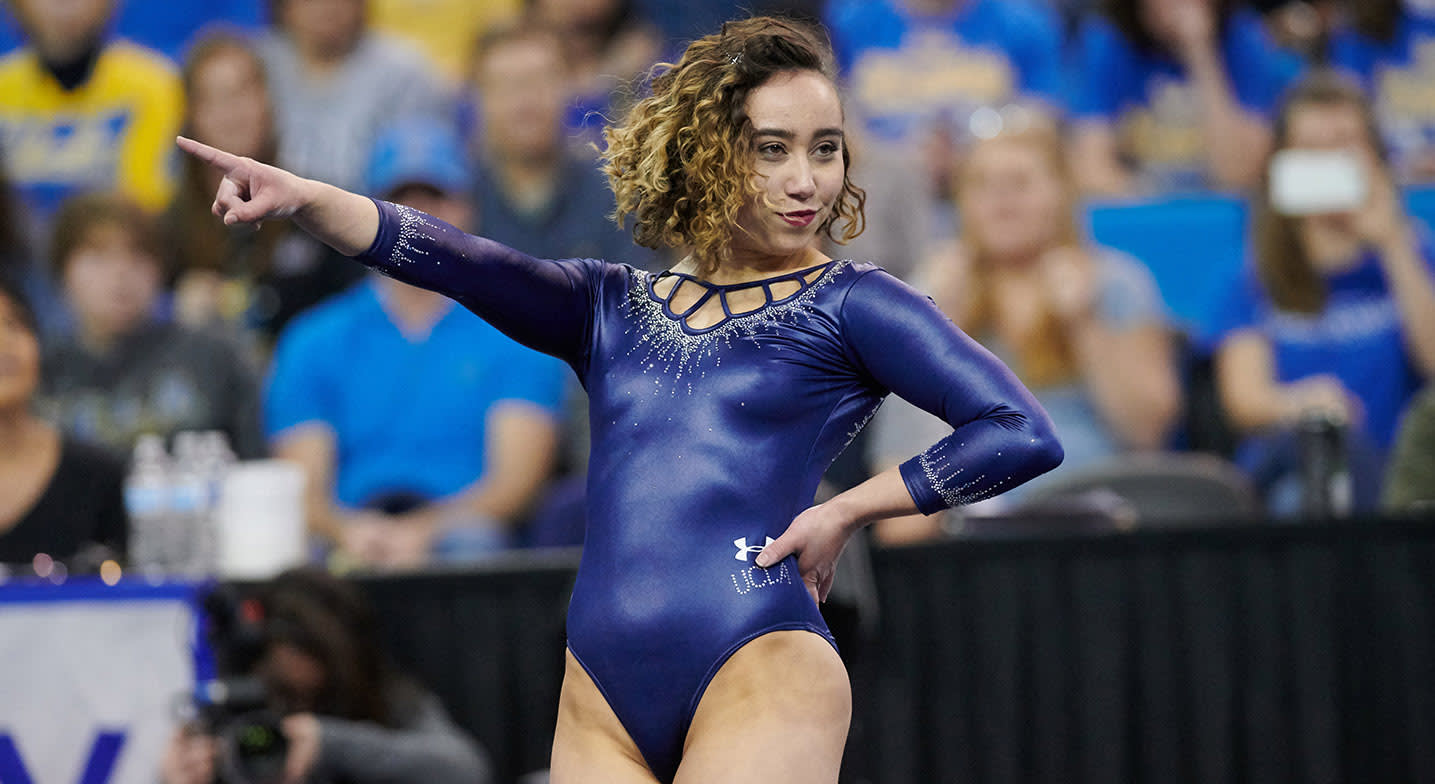In May 2018, my colleague Mary Pilon and I were sitting with Katelyn Ohashi in a UCLA Athletics office, interviewing the champion gymnast while reporting our Audible Original, . We mostly discussed the emotional and physical toll of elite gymnastics, sexual assault and Nassar's crimes, and the murky future of the sport's governing body. Ohashi said Nassar had treated her, but did not abuse her.
During the conversation, Ohashi's eyes darted toward a candy jar on a nearby desk. She paused and announced that she was going to help herself, but I did not partake. In the presence of one of the best college athletes in the country, I thought: What if she judges me for snacking?
Ohashi would have told me to eat a piece. The gymnast -- perhaps best known for , which scored her a rare perfect 10 -- is a fierce advocate for inclusivity and defying beauty standards.
"Everyone took it as their duty to judge me. Too revealing. Too fat," Ohashi told a crowd in July, after .
"The objectification of our bodies is making me sick."
In a sport whose leaders failed athletes at nearly every turn, and where for decades the prevailing image of a champion was a prepubescent-looking girl under the tutelage of an older man, Ohashi and many of her peers have been speaking out, joining the likes of the Olympic champion Dominique Moceanu and the national champion Jennifer Sey in denouncing a toxic culture.
"You have to uphold this image as an athlete, especially an elite gymnast, to look a certain way and be a certain size," Ohashi said. "I think I was like 74 pounds the first time I got called fat and got told that I shouldn't have dinner."
Ohashi, now 22, began gymnastics at age three in Seattle. Her talent prompted her mother to move her daughter to Missouri to train with the well-known coach Al Fong, and then to Texas to work with Valeri Liukin, the former Soviet Olympic champion (who is also the father of the Olympic champion Nastia Liukin and the coach who led the United States' women's gymnastics team after the famed coach Martha Karolyi retired).
Under Liukin, Ohashi said, her gymnastics improved. In 2013, she won the American Cup, beating a young Simone Biles. In hindsight, the commentary during her floor exercise was notable. Nastia Liukin remarked, "She was really excited about this routine, because she said she even gets to smile a little bit in the middle."
There was no visible smile. Ohashi was hampered by injuries; the American Cup would be her last competition as an elite gymnast, and her only one on the senior level.
"I can't really deny his talent as a coach," Ohashi later said, referring to Liukin. "But as time went on, it almost became like it was abusive, in a sense, mentally and emotionally."
Ohashi said she came home from the American Cup in tears. "I wasn't happy," she recalled. "I was just in pain, and I felt like my -- me, personally, and my body was used for the medal instead of like, really watched over." She said she went to the doctor because "I could feel my vertebrae protruding from my back, like sticking out. I couldn't touch it, even in the slightest, without being in tears."




